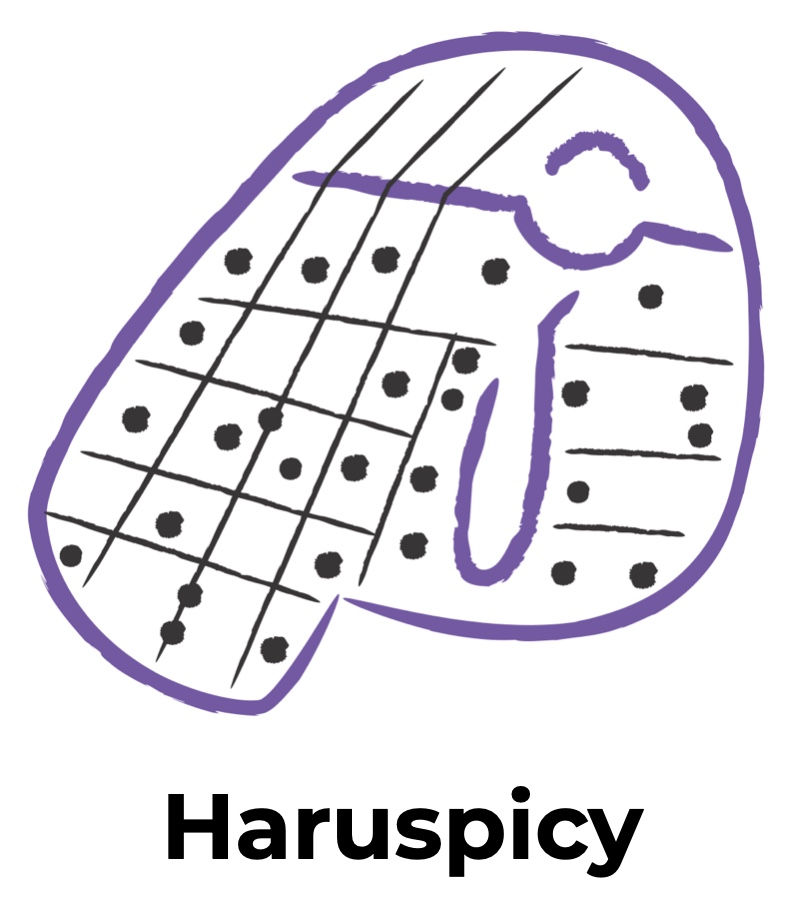Ifa
How to seek a prediction: Consult an Ifa diviner
(Sample) Equipment: special bowl-like tray and a set of palm nuts to use as markers
Personnel: An Ifa Diviner with at least 15 years of training, having memorized all the passages of the Odu needed to interpret Ifa device outcome
Ifa divination is practiced by the Yoruba people of southwestern Nigeria and West Africa. The exact origin of If a divination is

unknown, but it appears to pre-date Christianity and Islam in West Africa and it continues to be an important part of Yoruba culture in Nigeria and for Africans in America. For the more than 50 million Yoruba people who live in Nigeria and around the globe, the world (aye) is governed and controlled by the numerous orisa who inhabit the world, but have access to the habits and occurrences in the upper world (orun [heaven]) and the underworld (Ile). Orunmila, the god of divination, is regarded as one of the numerous deities and Ifa is his divination process. The occurrences, events, and activities are revealed to humans through the elaborate divination process of Ifa.
Through Ifa, the role of the diviner (known as a babalawo) is to help an individual or community to see what is in store for them in their day-to-day lives. The training to become a babalawo is an intense process. There are in principle 256 chapters in the divination process, called Odu, each one contains elaborative narratives of mythic stories related to history, events, ritual practices, etc... Importantly, the Odu is an oral tradition, and thus the babalawo-in-training must memorize all or most of the 256 Odu in order to be qualified to be a babalawo.
A divination session between the babalawo and the inquirer involves paying homage to Orunmila and the other ancestral babalawos who had performed successful divinations in the past, saluting the principal powers of the cosmos, invoking the mystical mothers, without whose help the rituals will not be efficacious. Then the diviner engages the inquirer, who takes a coin or paper, touches his forehead, whispers his/her prayers and requests, and asks for the secret behind his problem to be revealed, along with an appropriate solution.
Next, the diviner takes palm nuts from a divination bowl, tries to grab from his other hand most of the palm nuts, and then -- with the remaining one or two palm nuts -- marks the results of his activity in the powder in the divination tray (see the video below for an example of this in practice). This process is then repeated until the diviner can make four sides on the divination tray.
The result of this #randomizing process is the Odu divination sign that the babalawo then recites. The client listens and interprets, and then the babalawo gives a solution. Sometimes a consensus is reached in which the babalawo and client agree to do another session in order to determine if they got the exactly correct answer. The process clearly relies plenty on #human interaction, as well as the #randomized patterns seen in the palm nuts in the Ifa bowl.
Ifa Divination Session Explained:
Meet The Expert: Professor Jacob Olupona
Professor Jacob Olupona is the professor of African Religious Traditions and at Harvard University. His book City of 201 Gods is the definitive guide for understanding the Yoruba tradition and how it spread from Africa to the rest of the world. Professor Olupona has received the prestigious Nigerian National Order of Merit for his work.
Additional Resources:












